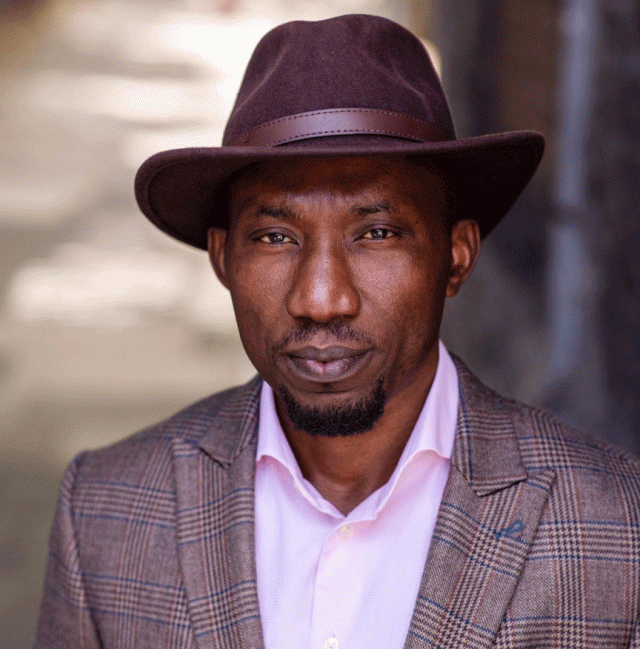Recently named one of the UK’s most influential black people in the 2021 Powerlist, Yemi Edun’s led Daniel Ford International has become one of London’s leading property acquisition consultancies. It has been responsible for over £650m in property transactions. Kenim Obaigbena interviewed her to learn more about his successes in the UK and what lessons Nigeria has to learn in the real estate sector.
How did you start in real estate?
When I moved to the United Kingdom, Information Technology was the fad. To be honest, I tried my hand at it and wasn’t the best at it, so I decided to do something different. I believed that people would make money in IT and need to purchase properties, meaning that I would be needed by my friends making money from IT and this indeed proved to be the case over the years. I started by managing my cousin’s property in Baker Street, and things gradually took off from there.
Were there difficulties working as a black male in the UK? (getting loans, buying property, etc.) Did racism play a role in your success, and if so, how did you fight through it?
Acceptance generally in the industry as an acquisition agent was a major difficulty. We always had to fight battles to prove what value we brought to the table and why we should command the fees and respect that we did. Once we were able to prove ourselves, however, the challenges became considerably easier to deal with.
I have lost transactions for no apparent reasons, but I’ve gained many more over time. Most racists are not abrasive, so you cannot be sure why people take a stance in most cases.
When it’s blatant, the law is there to protect all, I’ve had to pursue my rights and won. The system overall has worked for me, and I cannot complain.
What does it take to run an award-winning real estate agency?
My job as head of the company presently runs from strategic thinking and critical decision making to relationship and stakeholder management. Over the years, we’ve built a solid and capable team at DF, which frees my time to focus on higher-order and long-term tasks. So, in other words, a competent team staffed by loyal and trusted individuals is the key.
Do you invest in property in Nigeria?
I’ve been involved in property investments in Nigeria as far back as the early 90s, and I’m always looking for opportunities. I’m however mindful of the swings in the FX rate due to the source of capital.
Image 1

What are your thoughts on Nigeria’s real estate landscape, and what do you think the industry can learn from the UK?
A resilient market exists in Nigeria, but as always, constant improvement is key. The first thing I think needs to be addressed is the ease of transactions. Nigerians find it relatively easy to purchase in the UK, but foreigners find it comparably challenging to buy in Nigeria, and we need to ask ourselves why that is the case. Making it easy to purchase first improves the consumer’s experiences and increases the volume of transactions as it eases friction.
Also, transactions should occur through solicitors, as is the case in the UK. This helps with both data and transparency. Also, the reassurance that a regulated person is overseeing the process and safeguarding your interest brings a lot of comfort. Data is vital to the market for many reasons; for instance, you can see what houses in your area sold for and have a more up to date valuation of your property.
Property is a critical need, so the process needs to be very clear and simplified to all parties, an essential part of this is an end-to-end transparency, and the government needs to do all it can to help move this along. Transparency helps people plan and, with regards to ease of transaction, a good example is the CAC process for registering a company. There was a time when lawyers would have to go all the way to Abuja to register a company; now it can be done in five minutes online. That is a huge leap, and the effects would be more significantly felt if something similar is done in real estate.
Section 106 is another leaf to be borrowed. It means wherever you develop properties of 10 or more units; you have to create subsidized accommodation for key workers such as doctors, nurses, teachers, and social workers. That makes sense because no area should be without these people close by any reason, most especially affordability.
There needs to be more placemaking as well, so for instance, I shouldn’t have to go halfway across Lagos to get essential amenities, we need to create communities with all their necessities within arm’s reach. The recent proliferation of stores like Shoprite is quite helpful in this regard.
Finally, building regulations, we shouldn’t be hearing tales of houses collapsing. Strong building regulation can help keep this in check, from construction and building health and safety, to enforcement of disabled parking bays or even smoke alarms. When you put these things in place, it increases standards and safety and boosts employment as some people would sell, some people would install, and some people will certify. So, it creates a robust ecosystem.
I am yet to see a disabled parking bay in any hotel in Nigeria.
You open a lot of doors for black young people in real estate in London. What is the impact and significance of the black lives matter movement in the UK?
The Black Lives Matter movement has given black people everywhere an opportunity to be heard, which is a strong and powerful opportunity. You still have to put the work in, as things are still done on merit, but we at least hope to see the disparity shrink over time. And for the young people, we work with; it just means there would be better opportunities.
What does it take to be responsible for over a 650Million GBP in real estate transactions? What advice would you give people that aspire to be like you?
This takes us back to the question answered earlier, a strong and reliable team. Outside of that, regardless of the amount we have to manage, we only have to scale up what we are already doing. We would bring the same amount of diligence, care, and professionalism to the table. Work to your strength, try to improve on your weaknesses.
Tell us about your charity.
I came together with like-minded people to form ACE (acegiving.org) last year. We currently actively support four charities locally in Nigeria, and we will be doing a lot more in 2021. The support has been overwhelming from our community in the UK and USA, these societies thrive because people give back and our people need the support.













